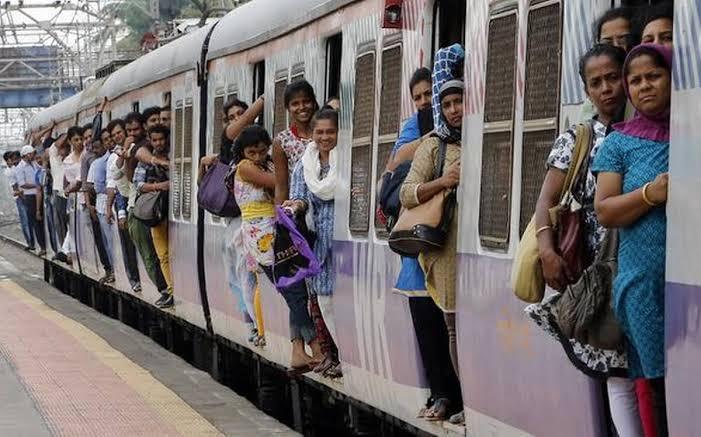Even during peak hours, local trains continue to appear crowded. Despite increased services, traveling during rush hours remains challenging. However, data from the railways reveals that compared to the pre-COVID period, millions of passengers have stopped commuting. The number of passengers has decreased by 6–8 lakh. Commuters have decreased at stations in South Mumbai that serve business centres.
According to data from Central and Western Railways, the average daily passenger count in December 2024 was about 70 lakhs, which is around 8 lakhs fewer than the average before the first COVID wave in March 2020. Railway officials state that the actual drop is between one and one and a half lakh people per day, but the advent of metro corridors has also contributed to the decline. Mumbai now has four operational metro corridors, including the first phase of Metro 3 (Aarey to Bandra Kurla Complex).

Impact on Western Railway
According to railway data, during the financial year 2019-20, an average of 34.87 lakh passengers travelled daily between Churchgate and Dahanu. This number has now dropped by approximately five lakhs. As per the latest data, the daily average passenger count now stands at 29.29 lakh. However, Chhatrapati Shivaji Maharaj Terminus (CSMT) and Churchgate remain the busiest stations on Mumbai’s local railway network. In November 2024, CSMT saw an average of 5.69 lakh passengers daily, while Churchgate recorded 4.32 lakh passengers. Apart from this, suburban stations like Thane, Kalyan, Panvel, Borivali, Virar, and Bhayandar were also the busiest.
Increase in ticketless travellers
Railway officials have noted a significant increase in the number of ticketless travellers over the past few years. “We estimate that the proportion of ticketless travellers has exceeded 30%, compared to the usual 15-20%. This is a major contributor to the heavy crowds on local trains, even though the daily passenger count is still slightly below pre-COVID levels.
To tackle this issue, Western Railway has intensified its ticket-checking campaigns. Between April and November 2024, a record ₹93.47 crore was collected in fines, including ₹30.63 crore from Mumbai’s suburban network alone.
